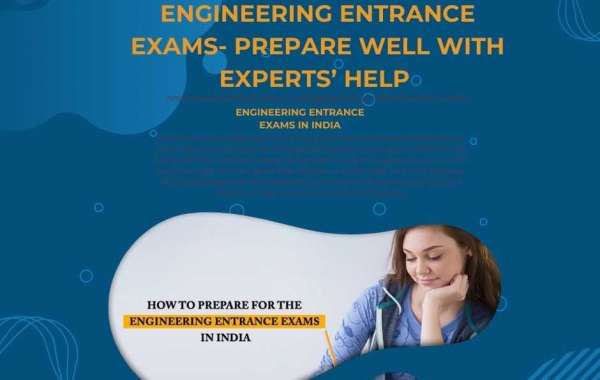Engineering entrance exams in India are highly competitive and serve as a gateway for students aspiring to pursue engineering courses in prestigious institutions across the country. These exams assess the knowledge, aptitude, and problem-solving skills of candidates and play a crucial role in determining their admission to undergraduate engineering programs. In this article, we will discuss some of the prominent engineering entrance exams in India, their significance, and the preparation required to excel in them.
Joint Entrance Examination (JEE):
The Joint Entrance Examination (JEE) is one of the most sought-after engineering entrance exams in India. Conducted in two stages - JEE Main and JEE Advanced - it serves as the entrance test for admission to the Indian Institutes of Technology (IITs) and other top engineering colleges across the country. JEE Main is the preliminary stage, while JEE Advanced is the final stage for admission to IITs. Clearing the JEE exams not only opens the doors to prestigious institutions but also provides ample opportunities for students to pursue their dream careers in engineering.
BITSAT:
The Birla Institute of Technology and Science Admission Test (BITSAT) is another popular engineering entrance exam in India. It is conducted by BITS Pilani for admission to its integrated first-degree programs in engineering, pharmacy, and sciences. BITSAT is an online computer-based exam that evaluates a student's knowledge in subjects like Physics, Chemistry, Mathematics, English Proficiency, and Logical Reasoning. A good score in BITSAT offers admission to one of the BITS campuses, which are known for their excellent infrastructure and academic rigor.
VITEEE:
Vellore Institute of Technology Engineering Entrance Examination (VITEEE) is conducted by VIT University for admission to its undergraduate engineering programs. The exam assesses students' knowledge in Physics, Chemistry, Mathematics/Biology, English, and Aptitude. VIT University is renowned for its technical education and industry collaborations, making VITEEE a sought-after exam among engineering aspirants.
State-Level Entrance Exams:
Apart from national-level exams, each state in India conducts its own engineering entrance exams. For example, the Maharashtra Common Entrance Test (MHT-CET), Karnataka Common Entrance Test (KCET), and Tamil Nadu Engineering Admission (TNEA) are some of the prominent state-level exams. These exams offer admission to state engineering colleges and universities. State-level exams provide opportunities for students to pursue engineering education within their respective states, often at subsidized costs.
Importance and Significance:
Engineering entrance exams in India hold significant importance due to several reasons. Firstly, these exams act as a standardized platform for evaluating students' aptitude and knowledge in subjects relevant to engineering. They ensure that the candidates entering engineering institutions possess the required skills and understanding to excel in the field. Moreover, the rigorous competition involved in these exams prepares students for the challenges they might face during their engineering journey.
Secondly, clearing these exams opens doors to renowned engineering institutions in India, such as the IITs, NITs, BITS, and other prestigious colleges. These institutions boast world-class infrastructure, faculty, and research opportunities, providing students with an ideal environment to nurture their engineering skills and excel in their chosen fields.
Additionally, engineering entrance exams offer a wide range of career opportunities. Engineering graduates are in high demand in industries such as IT, manufacturing, automotive, aerospace, telecommunications, and many more. The knowledge and skills acquired during the engineering education process enable graduates to take up challenging roles and contribute to technological advancements and innovation.
Preparation Strategies:
Preparing for engineering entrance exams requires a systematic approach and dedication. Students should develop a study plan and allocate sufficient time for each subject. Regular practice of solving previous years' question papers and mock tests helps in understanding the exam pattern and improving time management skills










